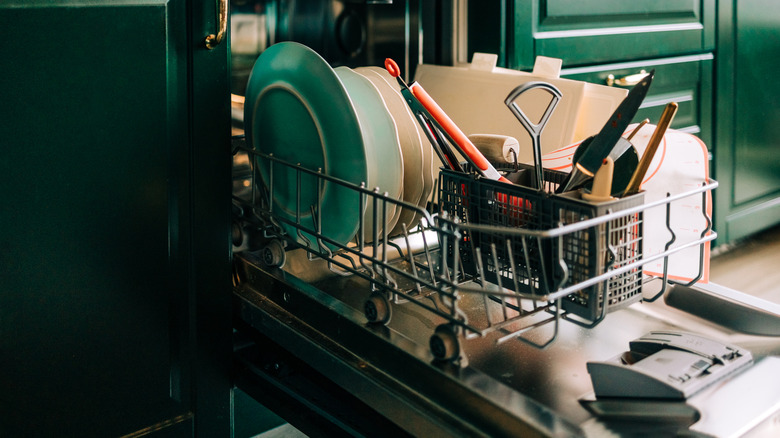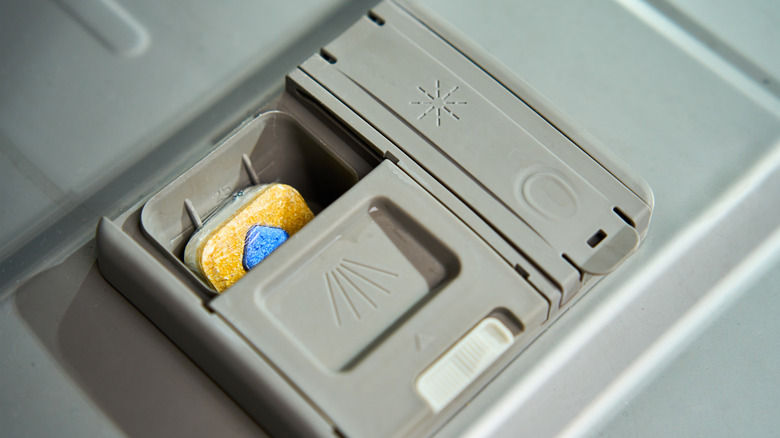If You Run Your Dishwasher At This Time, You Might Save Money
Pushing start on your dishwasher can feel like an accomplishment on the never-ending to-do list of life, but before you run it, consider the time of day. The cost of using a dishwasher can vary based on peak or off-peak energy windows. Peak energy hours are when the demand for energy is highest: Think about the busy morning and evening times when everyone's home from work or school and watching television, charging devices, playing games, or turning on most (if not all) of the lights in your home. This is likely the most expensive time to run your dishwasher.
Energy companies can elevate rates during peak times to discourage heavy electricity use when demand is at its highest, but this same idea also applies to off-peak hours. These are timeframes when the least amount of electricity is being used in your area — typically, from 10:00 a.m. to 4:00 p.m., when many people are away from home at work or school, and from 9:00 p.m. to 6:00 a.m., when most people are asleep.
Off-peak energy usage will fetch you a lower rate because there's less demand on the power grid. It's best to check with your local power company to find out the peak and off-peak times in your area. It's also good practice to run your dishwasher in the evening as a part of your nightly kitchen shutdown routine. Aside from being intentional about when you run your appliance, there are other ways to improve your dishwasher's power consumption.
How to make your dishwasher more efficient
Running your dishwasher during off-peak hours is a great start to more cost-effective living, but an efficient dishwasher will certainly help you along the way. To make sure your dishwasher is at tip-top performance levels, take care to maintain it properly. It's recommended to clean your dishwasher (especially with vinegar) every thirty days, but this can vary based on frequency of use. Another thing to consider is that you might be loading your dishwasher all wrong. If you're stacking dishes randomly wherever they'll fit and tossing silverware inside just to get the dishes out of the way, one, you're not alone, and two, don't do that. An improperly loaded dishwasher prevents your dishes from getting clean and can leave you with grime or soap residue, which often requires a rewash and more energy use.
Other ways to help out your dishwasher are rinsing the dishes before running them through a cycle and cleaning out any debris that gets left behind in the appliance after a wash. Check your dishwasher's user manual (if you don't have a booklet, it may be available on the brand website) for how to conduct proper maintenance steps like these. Taking care of your dishwasher and running it during off-peak hours may just make a noticeable change in your electric bill, and if you're ever in the market for a new dishwasher, it might be time to opt for an energy-saving model.

